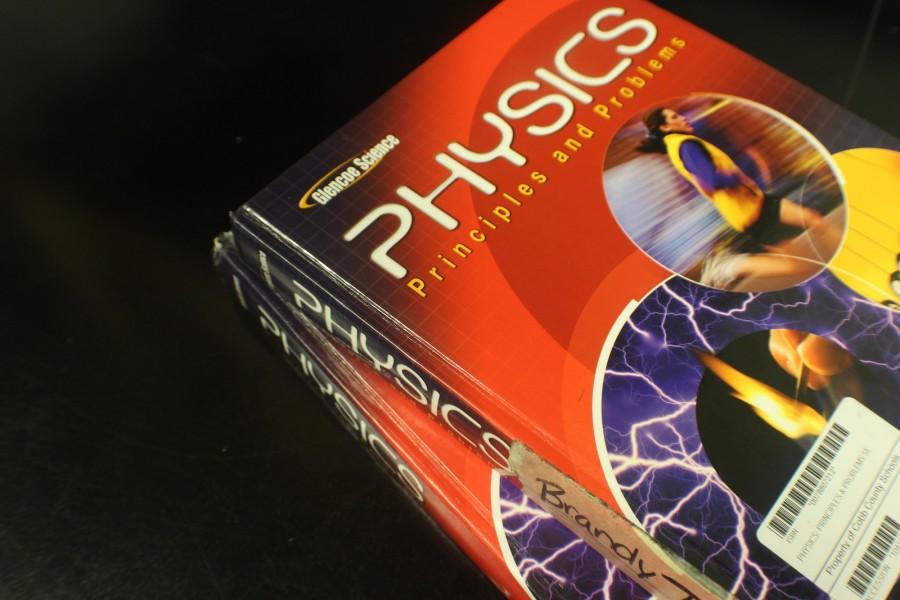Let’s get physical: AP vs. Honors Physics
Teachers continually stress that AP Physics and Honors Physics involve minimal difference. The Chant investigates what each course involves.
November 6, 2015
Counselors and teachers alike continuously compare Honors Physics to Advanced Placement Physics, encouraging students considering Honors to take AP because of the limited differences. Even if the two courses offer similar curriculum, differences range from teaching styles to curriculum, and this guide can help clear up the confusion.
The first difference comes from the type of curriculum used. “There is a more prescribed curriculum for AP Physics,” Honors Physics instructor Elizabeth Walker explained. “The AP curriculum cannot change; everyone around the country taking this class uses the AP exam as a model for instruction. Whereas the Honors Physics curriculum can be somewhat flexible.”
The second difference resides in the material the classes undertake. “The AP course goes in more depth,” said AP Physics teacher Susan Ryan. “Honors covers more material.” Honors Physics tends to promote more of an algebra-based approach while AP goes into calculus.
The third difference rests with their teaching approach. Walker describes her class as “kinesthetic,” great for the ADD (Attention Deficit Disorder) spectrum. Honors Physics relates to an experimentally-driven course. In it, students derive all formulas experimentally where students decide what variables they can test and then go about testing them. Less time goes into lecturing as compared to the AP course; more time goes into practicing. Honors Physics primarily explores student-driven discussion; the teacher only guides the discussion.
“We use a modeling instruction teaching strategy,” Walker said. Modeling instruction means that, instead of textbook learning, the course, heavily built around a small set of coherent models—concepts constantly building on top of each other―in order to create a bigger and solid whole mirrors psychology’s Gestalt principle.
The fourth difference considers how the classes analyze their work. “My class is more conceptual, while Honors is more analytical,” Ryan said. Meaning, while the AP course uses more creative concepts in order to find a solution, the Honors class involves more logic-based reasoning.
Nonetheless, the greatest difference may lie in that the AP course earns college credit. According to Ryan, students should not regard AP Physics as necessarily harder, just “different.”











